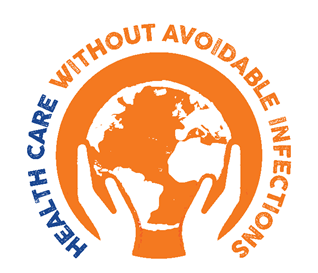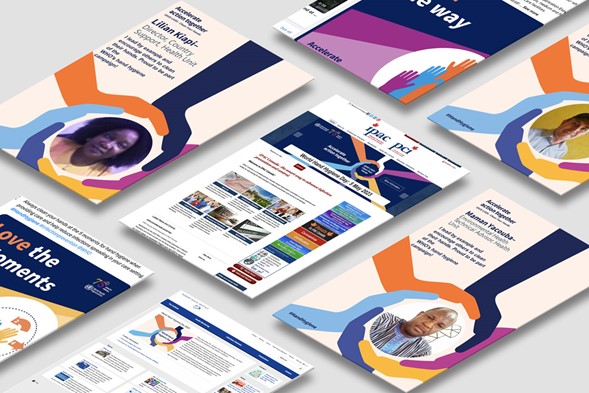
« Înapoi la lista Evenimentelor
- Acest eveniment-a trecut.
WORLD HAND HYGIENE DAY, 5 MAY 2023


WHO Infection Prevention and Control
Global Newsletter
World Hand Hygiene Day, 5 May 2023
World Hand Hygiene Day (WHHD) 2023 has arrived! We hope you have been engaging with the campaign during the lead up to 5 May and making use of the resources on the campaign webpage.
We have previously shared with you an overview of the assets available in 6 UN languages, including the 2023 image and logo, campaign video, target audience-specific posters and , social media tiles – all available for downloads. The campaign guide is available for partners, with assets and ideas about how to engage with the campaign, including holding a hand hygiene Café and using the poster maker to showcase your campaign on social media (hashtags: #HandHygiene and #CleanHands).
A video message from the WHO Director General, Dr Tedros Adhanom Ghebreyesus, will also be released here on 5 May to reinforce the importance of continuing our efforts to prioritize hand hygiene improvement.
The WHO IPC Hub is also pleased to share with you the following additional new products:
• A summary of WHO hand hygiene research agenda priorities. The first ever WHO research agenda on hand hygiene in health care is now available! It was developed over the last two years through a consultative process including a large group of experts and implementers from around the world, using a rigorous methodology. The main goal of setting an evidence- and expert consensus-based research agenda on hand hygiene is to accelerate knowledge generation about the best interventions to improve practices. In turn, this will improve quality of care and patient outcomes and reduce the risk of health care-associated infections and antimicrobial resistance. The summary issued on 5 May 2023 provides guidance on the highest priorities for hand hygiene research. This research agenda can be a useful tool for researchers, and donors to direct their investments to areas of hand hygiene research that still have significant gaps. Increasing the evidence and its quality in the field of hand hygiene improvement strategies will be extremely beneficial also to direct policy makers and implementers towards the most effective and cost-effective interventions. Ultimately, this research agenda will contribute to improving compliance with hand hygiene and safeguarding patient safety. This document can be accessed both on the IPC landing page as well as the landing page for hand hygiene.
• A new webpage on ‘Basic IPC and primary care’ , will be published with new and existing resources! It can be accessed from the IPC landing page.
• New IPC assessment tool for primary care facilities. ‘Assessment tool on infection prevention and control minimum requirements for primary health care facilities’. This tool will assist primary care facilities to assess their level of implementation of the WHO minimum requirements for IPC and to identify those that still need to be achieved or improved. This tool will be accessible on the newly launched webpage for IPC in primary care settings.
• Prevention of surgical site infection package for primary care settings. A practical and intuitive infographic and inventory document has been created to facilitate the access to all available WHO resources on the prevention of surgical site infection that can be most useful in primary care settings.
• Testing of an early access version of the WHO “5 Moments: The Game”. This is a compassionate serious game designed to keep patients and health workers safe by improving hand hygiene practices. It balances the fun, engaging, and enlightening side of gaming with the scientific and theoretical approaches to hand hygiene improvement that will contribute to changes in health worker behaviour in the real world. The game is set in the International Alien Hospital two hundred years in the future. Players must look after their alien patients and keep earth safe by performing hand hygiene at the right moments. The Game is still under development, and on the 5 of May, three modules will be ready for game-play testing among a community of users.
Don’t forget to join us for the WHO annual webinar on 5 May to be part of a conversation about the importance of hand hygiene and IPC, with a particular focus on the actions and roles of civil society organizations to accelerate change at local, national and international levels. Speakers will include Prof. Didier Pittet of the Geneva University Hospitals and the Senior advisor to the WHHD campaign, and representatives of several civil society organizations, including International Confederation of Midwives, Uganda National Health Consumers’ Organization, International Council of Nurses, World Medical Association and WaterAid.
On 5 May 2023 (19:30 CET), also attend the Webber Training special lecture for 5 May; speakers will be Prof. Didier Pittet, (University of Geneva, Switzerland) and Dr Benedetta Allegranzi (IPC Hub, WHO HQ). There is still time to register for this teleclass!
As we celebrate 15 years of the SAVE LIVES: Clean Your Hands campaign, WHO would like to thank all our partners for their continued efforts to promote WHHD and accelerate progress at achieving effective hand hygiene at point of care!
This newsletter is prepared by the Infection Prevention and Control Technical and Clinical Hub (IPC T&C Hub) at WHO headquarters, with input from the WHO IPC global team and our partners and stakeholders.
For further information on WHO and IPC, please visit the WHO IPC web page
Providing WHO information must be balanced with available resources, both human and financial. WHO do their best to translate their most relevant tools and documents. Regretfully, we are not currently able to translate this SAVE LIVES: Clean Your Hands newsletter into French or Spanish. We apologize for any inconvenience this may cause you and hope that you will remain a valued reader of the newsletter.
La délivrance d’informations provenant de l’OMS dépend des ressources disponibles, à la fois humaines et financières. L’OMS, comprenant l’équipe “Un Soin Propre est un Soin plus sûr”, fait de son mieux pour traduire ses outils et documents les plus importants. Malheureusement, nous ne sommes pas actuellement en mesure de traduire la lettre d’information mensuelle de SAVE LIVES: Clean Your Hands en français et en espagnol.Nous nous excusons pour ce désagrément et espérons que vous resterez un fidèle lecteur de la lettre d’information à l’avenir.La información generada por la OMS, depende de los recursos humanos y económicos disponibles. El Programa, y el equipo de la iniciativa “Cuidado Limpio es Cuidado Seguro”, realizan sus mejores esfuerzos para traducir el material y documentos de mayor importancia. Desafortunadamente, por el momento no contamos con la facilidad de traducir el boletin mensual SAVE LIVES: Clean Your Hands en francés o español. Lepedimos disculpas por cualquier inconveniente que podamos causarle, y esperamos seguir contando con su valiosa participación como lector de nuestro boletin.

